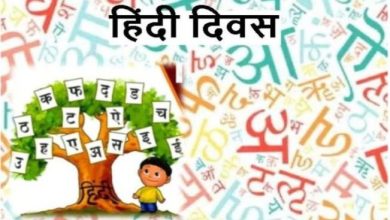MSP of Paddy increased by Rs 65 per Quintal, Jowar by Rs 120 per Quintal and Ragi by Rs 253 per Quintal
New Delhi: Giving a major boost to the farmers’ income, the Cabinet Committee on Economic Affairs chaired by Prime Minister Shri Narendra Modi has approved the increase in the Minimum Support Prices (MSPs) for all kharif crops for 2019-20 Season.
The move will lead to increased investment and production through assured remunerative prices to the farmers.
Details:
The MSPs for all kharif crops of 2019-20 season have been increased as follows:
- For the kharif crops of 2019-20, Government has increased the MSPs of soyabean by Rs 311 per quintal, sunflower by Rs 262 per quintal and sesamum by Rs 236 per quintal which is a major step towards increasing the income of farmers.
- Government has increased the MSPs of tur dal by Rs.125 per quintal and uraddal by Rs.100 per quintal. This willhelp address the issues related to requirement of pulses in view of the need to meet the nutritional security and protein requirements of a large section of population.
- The MSP of Jowar has been hiked by Rs 120 per Quintal while in case of Ragi it has been hiked by Rs 253 per quintal. The Move comes in the backdrop of the need to promote cultivation and consumption of nutri-cereals. Besides, India celebrated 2018 as the National Year of Millets and the Food and Agriculture Organisation (FAO) Council has approved India’s proposal to observe an International Year of Millets in 2023.
- For cotton (medium staple) and cotton (long staple), the MSP has been increased by Rs. 105 per quintal and Rs. 100 per quintal respectively.
- The highest percentage return to farmers over their cost of production is for Bajra (85%) followed by urad (64%) and tur (60%).
The Minimum Support Prices for all kharif crops of 2019-20 season is as follows:
|
Crop |
MSP
2018-19 |
MSP
2019-20 |
Cost* of
production 2019-20 (Rs/quntl.) |
Increase | Return
over cost (in per cent) |
| Absolute | |||||
| Paddy (Common) | 1750 | 1815 | 1208 | 65 | 50 |
| Paddy (Grade A)^ | 1770 | 1835 | – | 65 | – |
| Jowar (Hybrid) | 2430 | 2550 | 1698 | 120 | 50 |
| Jowar (Maldandi)^ | 2450 | 2570 | – | 120 | – |
| Bajra | 1950 | 2000 | 1083 | 50 | 85 |
| Ragi | 2897 | 3150 | 2100 | 253 | 50 |
| Maize | 1700 | 1760 | 1171 | 60 | 50 |
| Tur (Arhar) | 5675 | 5800 | 3636 | 125 | 60 |
| Moong | 6975 | 7050 | 4699 | 75 | 50 |
| Urad | 5600 | 5700 | 3477 | 100 | 64 |
| Groundnut | 4890 | 5090 | 3394 | 200 | 50 |
| Sunflower Seed | 5388 | 5650 | 3767 | 262 | 50 |
| Soyabean (yellow) | 3399 | 3710 | 2473 | 311 | 50 |
| Sesamum | 6249 | 6485 | 4322 | 236 | 50 |
| Nigerseed | 5877 | 5940 | 3960 | 63 | 50 |
| Cotton (Medium Staple) | 5150 | 5255 | 3501 | 105 | 50 |
| Cotton (Long Staple)^ | 5450 | 5550 | – | 100
|
– |
*Includes all paid out costs such as those incurred on account of hired human labour, bullock labour/machine labour, rent paid for leased in land, expenses incurred on use of material inputs like seeds, fertilizers, manures, irrigation charges, depreciation on implements and farm buildings, interest on working capital, diesel/’electricity for operation of pump sets etc. miscellaneous expenses and imputed value of family labour.
^Cost data are not separately compiled for Paddy(Grade A), Jowar (Maldandi), Cotton (Long staple)
Implementation:
In the case of cereals including nutri-cereals, Food Corporation of India (FCI) and other designated State Agencies would continue to provide price support to the farmers. NAFED, SFAC and other designated Central agencies would continue to undertake procurement of pulses and oilseeds. CCI will be the central nodal agency for undertaking price support operations for Cotton. NAFED would supplement efforts of CCI for cotton procurement. The losses, if any, incurred by the nodal agencies in such operations will be fully reimbursed by the government.
With the intention of giving enough policy thrust to income security of the farmers, Government’s focus has shifted from production-centric approach to income-centric one. Enhancing the coverage of Pradhan Mantri KisanSamman Nidhi (PM-KISAN) to all farmers in its first Union Cabinet meeting on 31st May 2019, is another major step in boosting the income of the farmers. The PM-KISAN yojana was announced in the interim Budget for the year 2019-2020, where the small and marginal landholder farmer families with cultivable land holding upto 2 hectare across the country were assured of Rs 6000 per year.
The new Umbrella Scheme “Pradhan Mantri AnnadataAaySanrakshan Abhiyan’ (PM-AASHA) announced by the government in 2018 will aid in providing remunerative return to farmers for their produce. The Umbrella Scheme consists of three sub-schemesi.e. Price Support Scheme (PSS), Price Deficiency Payment Scheme (PDPS) and Private Procurement & Stockist Scheme (PPSS) on a pilot basis.
Background:
The increase in MSP for Kharif Crops for 2019-20 season is in line with the principle of fixing the MSPs at a level of atleast 1.5 times of the all India weighted average Cost of production (CoP), which was announced in the last budget 2018-19.
This MSP policy whereby the farmers are assured of a minimum of 50 percent as margin of profit is one of the important and progressive steps towards doubling farmers’ income by 2022 and improving their welfare substantively.
The MSP mechanism provides a price guarantee to the farmers for their produce. This is implemented across the country as nearly 86% farmers are in small and marginal category (Agriculture Census 2015-16), the system ensures equity. It also helps in stabilising prices in the market and thus services the consumers as well.


